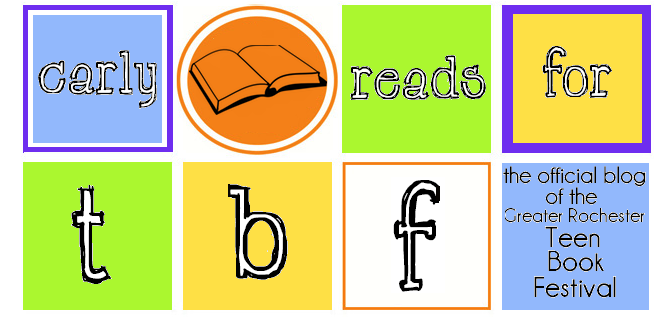The Interview Collector Interviews Patrick Jones
Hello Bookworms!
It’s been a while since I used that salutation … remember back when I started the blog and did that whole intro about finding the “perfect” salutation to open all my posts with? Yeah, definitely gave up on that. Turns out my brain power is better spent doing things like studying for final exams …
Anyway, you’ll have to make do with a recycled salutation for today. Have no fear, though, because I have a brand new interview with Patrick Jones for you!
C: “The Tear Collector” is the only book of yours that I’ve gotten to opportunity to read, but it seems (from the descriptions of your other books) that “The Tear Collector” is pretty different from your others. Would you agree with this? Did you set out wanting to write in a completely separate direction?
PJ: Yes and no. It is very much a supernatural sorta vampire novel and all the rest of my titles are realistic fiction, Tear Collector also handles some of those issues you find in other books: the search for identity, conflicted relationships, and high school drama. Lots of drama. I hear that word all the time from teens during school visits about their is so much drama in school, so I wondered what if there was a reason for this drama. A creature that feed on the tears the drama produced / produced the drama to create the tears.
C: I hate to give too much away, but I’ll just lay out the basic storyline: “The Tear Collector” is about a family of vampires that exists on human sorrow, rather than blood. How did you decide on this twist? How do you think it sets “The Tear Collector” apart from all the other vampire books out there right now?
PJ: Well, there are so many fluids out there .... and a snot vampire might make a great book for 4th grade boys, but. In addition to the drama aspect I mentioned, I just think teen years are tear years because there is so much hurt. Cassandra says in the book – describing herself – "that if you can't feel love and don't mind being lonely, high school is very easy." Well, most teens can feel love and don't like being lonely, thus high school is hard. The most difficult part of the story was figuring out the mythology. When I first started "road testing" the book, the number one questions was "how do they get the tears".
C: The protagonists of your novels are both male and female. Do you find it more difficult to write from one of those perspectives over the other? Do you find it difficult to, as an adult, write from a teen’s perspective?
PJ: I'm an almost 50 year old man trying to pretend I'm a 17 year old girl, and the way I do that is when I write, I wear these high heels. Wait, that's not true. They're pumps. The most difficult thing to do is to figure out not so much the mindset or psychology of the teen or the cultural stuff, but figuring out what a teen in 2010 knows. What references would they make/get? I think I have the "voice" thing down, I struggle with how much they know. One thing I do is let a selected group of teens read the books before I send them to my publisher as a "check" to make sure I get these things right.
C: What was the last book that you read for pleasure?
PJ: Teen Fiction was “Going Bovine” by Libby Bray which I listened to, and “Wish You Were Here” by Catherine Clark which I read. Nonfiction is “Nixonland” by Rick Perlstein.
C: What author are you most looking forward to meeting and/or seeing at the Fifth Annual TBF?
PJ: I'm looking forward to talking with Terry Trueman since we share the same agent and Simone Elkeles since we share the same editor.
Thanks for the great interview, Patrick. TBF is growing closer and closer by the day and we can’t wait to meet you soon!


Sadly, I need to cancel my visit to TBF. I hope to be there next year.
ReplyDelete